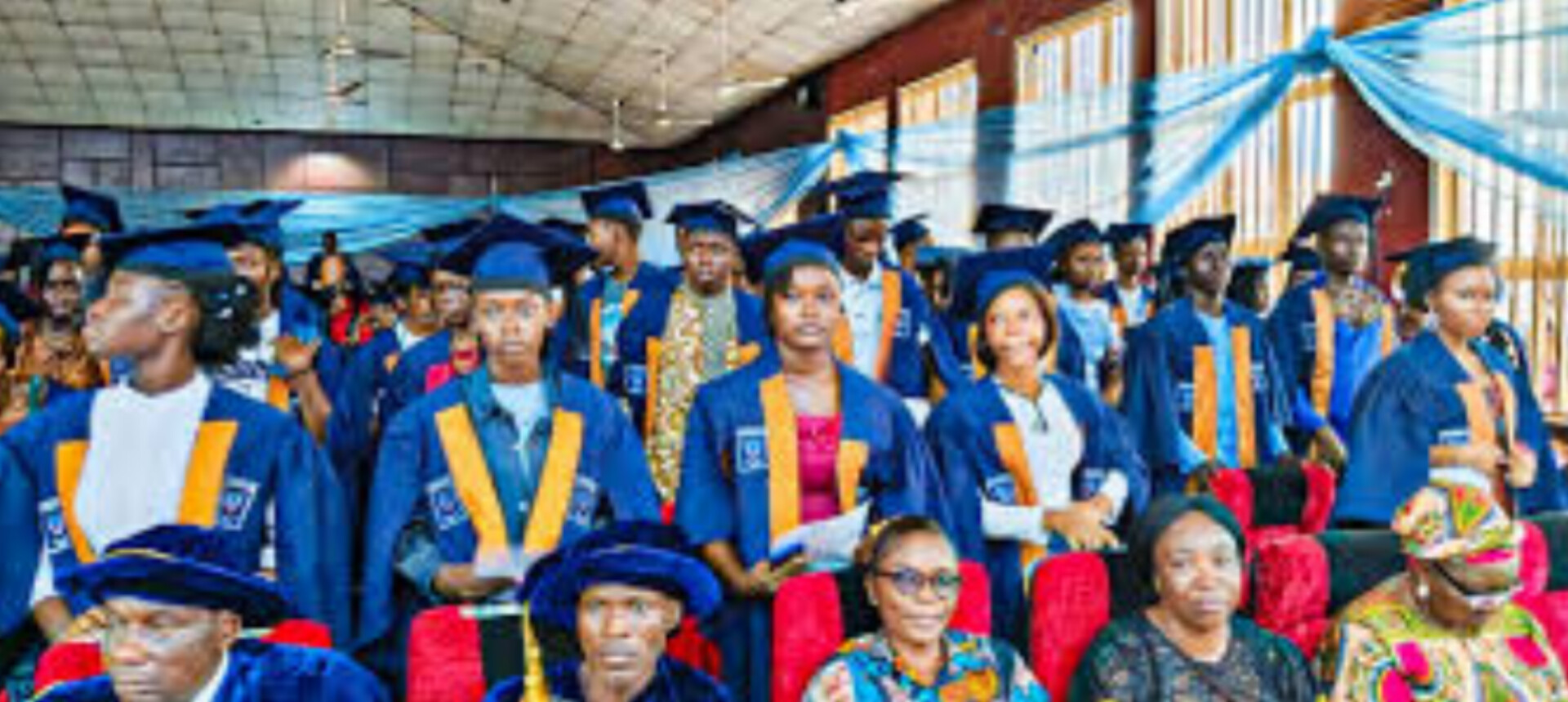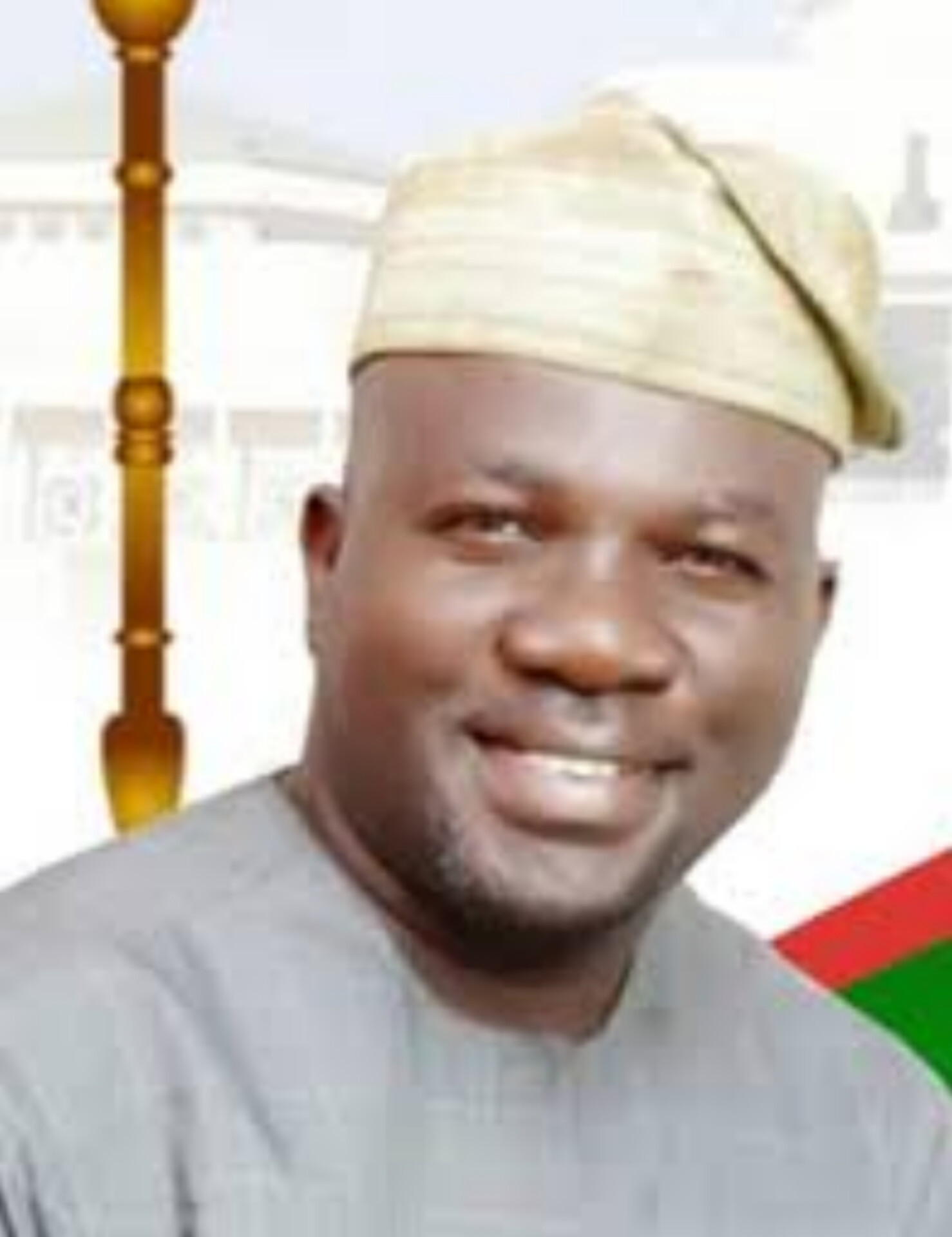Education
KONGONET raises issues on nonpayment of full salary to primary school teachers in Kogi

Coalition of civil society organizations, Kogi NGOs Network (KONGONET) has indicated that the Kogi state government had since neglected the welfare of primary school teachers as evidenced in the non-payment of full salaries to basic education teachers across local government areas of the state
It therefore called on the Government to address the non- payment of full salaries to basic education teachers without further delay.
The coalition through her state coordinator gave the indication in the 2nd Quarter 2022 report by KONGONET presented to journalists in Lokoja on 4th July, 2022, by Idris Ozovehe Muraina and Mrs. Henry Hellen, Chairperson and Secretary respectively.
The coalition explained further that the payment of full salaries will ensure children of the poor, who mostly patronise these schools, are given adequate attention to enjoy the good work being done by the state government.
According to a member of KONGONET, the Civil Society Action Coalition on Education for All (CSACEFA) acknowledged the state government’s mega investment on school infrastructural development.
While congratulating the government of Kogi State for the positive move, CSACEFA called on Kogi state government to invest heavily on the wellbeing of basic education teachers across the state.
KONGONET also called on the state government to provide the Youth Development Commission with the necessary financial support to enable it perform maximally and empower youths across the state to curtail the high youth unemployment situation of the state.
“Kogi NGOs Network (KONGONET) will consistently support laudable initiatives of government to ameliorate the suffering of Kogites and ensure the state upholds the tenets of democracy and fair play in her administration of our collective resources.
“On behalf of Kogi State Civil Society Groups, we appreciate the Kogi state government for appointing Civil Society member representatives on local and state government audit board. The recent assent to the Violence Against Persons Prohibition (VAPP) law is a big one for us all, congratulations Kogites,” the statement said.
On agricultural intervention, KONGONET noted that the release of 3rd Biennial Report on the performance of Africa on the Comprehensive African Agriculture Development Programme (CAADP) showed clearly that Nigeria is not on track to meeting all the targets especially on funding, which is according to the Maputo Declaration is a minimum of 10% of State Budget.
The coalition stated that this has grave consequences for food security and poverty reduction.
“The Kogi State Budget Committee Group (BCG) within the reporting period examined the state agricultural budget performance and opined that the state need to release more funds to the sector to improve and overcome the worrisome and persistent increase in the prices of food commodities across the state. The group said more worrisome is the observed consistent denial of funds to women in Agriculture, even though it is captured in the state budget every year.
“SWOFON Kogi State and Budget Committee Group (BCG) concluded that if Agriculture is to serve as a means of diversifying the economy of Kogi State as promised in the new direction blueprint, then allocations to the sector is grossly inadequate and fund releases to the sector are too poor.”
Kogi NGOs Network (KONGONET) is a coalition of civil society networks championing the promotion of participatory democracy, good governance/best practices, transparent governance and network coordination in Kogi State through advocacy and policy influencing for the well-being of Kogites.
Education
Federal University Lokoja Matriculates 4,925 For 2023/2024 Session

By Friday Idachaba, Lokoja.
FEDERAL University Lokoja has matriculated 4,925 students into its over 57 programmes from seven faculties, for the 2023/2024 academic session with a charge for them to uphold the values and standards of the university.
Vice Chancellor of the University, Prof. Olayemi Akinwumi gave the charge during the matriculation ceremony at the Adankolo Campus of the University on Thursday in Lokoja.
Prof. Akinwumi urged them to maintain obedience to school authority and maintain good conduct adding that violation of their oath would be met with appropriate sanctions.
The 4,925 figure excludes the those admitted into faculties of Law, Agriculture and Pharmacy which were recently Resource Verified.
The VC noted that the mission of the University is to ‘Provide quality education, foster critical thinking, and produce well-rounded graduates who are equipped with the skills and knowledge to contribute meaningfully to society.
“Our vision is to
be the best among the universities in Nigeria and one of the top 10 universities in Africa. We aspire to become a world-class University recognized for excellence in teaching, research, and community engagement.
“These guiding principles serve as our compass, driving us towards academic innovation, social responsibility, and transformative impact”, he said.
The Vice Chancellor charged the 4,925 “bright minds joining our university family to bring unique talents, experiences, and aspirations to bear on their scholarship. We are excited to witness the contributions you will make to our academic community and beyond.
“However, as we celebrate your entry into our academic community, it is crucial to recognize the responsibilities that accompany this privilege. You are not just students; you are ambassadors of our university.
“Hence, as you take your oath today, remember it binds you to obedience to authority and maintaining good conduct throughout your stay in Federal University Lokoja. Any violation of this oath will be met with appropriate sanctions.
“I must also emphasize the importance of upholding the values and standards of our university. Federal University Lokoja has zero tolerance for social vices such as cultism, examination misconducts, and indecent dressing.
“Therefore, I urge each and every one of you to prioritize your academic pursuits and resist the temptations of engaging in such destructive activities”, he said.
Prof. Akinwumi urged them to remember that their actions not only reflect upon themselves but also upon the reputation of the university as a whole and he admonished them to be security conscious at all times.
He also reminded the matriculating students that it was essential that they remained vigilant and aware of their surroundings and report any suspicious activities or concerns to the appropriate authorities.
Akinwumi further advised them to always prioritize their personal safety above all and urged them to avail themselves of the opportunities for personal and intellectual growth that await as they embark on this new chapter of life.
“Your time at Federal University Lokoja has the potential to be transformative, shaping you into leaders and scholars of the highest caliber”, he enjoined them. (Ends)
Education
Allocate 25% of annual budget to education, Aare Hassan urges President Tinubu

A legal practitioner, Aare Oba Oladotun Hassan has urged the Nigerian President, Bola Ahmed Tinubu to come up with a national Policy plan on Education to raise the bar in budgetary allocation to the sector to 25% of the annual budget in line with UNESCO standards.
A breakdown of the immediate past administration’s annual budgetary allocations between 2016 to 2023 showed that N369.6 billion or 7.9% was allocated in 2016; N550.5 billion or 7.4% in 2017; N605.8 % in 2018 and N620.5 billion or 7.05% of the annual budgets were approved for the education sector in his first term spanning 2016 to 2019
In his second term, President Muhammadu Buhari’s administration allocated N671.07 billion or 6.7% in 2020; N742.5 billion or 5.68% in 2021; N1.18 trillion or 7.2% in 2022 and N1.79 trillion or 8.8% in 2023 of the annual budget for the period under review.
However, the Statistics showed that out of total sum of N27.5 trillion proposed by the Tinubu led Government for 2024, N2.18 trillion or 7.9% is for education sector in 2024 fiscal year.
Aare Hassan who spoke as one of the discussants on Thursday at the annual lecture and Book Launch in honour of Prof Emeritus Benedicta Egbo with the theme Reclaiming Nigeria’s Future: Strategic Framework for Achieving Transformative Change held in Abuja
He explained that Tinubu has come up with renewed hope agenda in which education is part of his vision and the buck stops at his desk.
“We want to use this opportunity to let him know that he needs to come up with a national policy plan on Education by increasing the budgetary allocation to education to 25% and ensure the curriculum in the education system is reviewed to bring about proper administration whereby there will be no more ASUU strike, no more NASU or SANU strikes.
“We believe that the best way we can achieve this is through restructuring. The constitution of the country is long overdue, talking about constitutional review we need a new People’s constitution whereby issues about education will have a life of its own.
He said by so dojng, there will be proper planning, issue of security would be properly outlined and all the other issues bedevilling the country, will all be reviewed.
“We have gotten documents in the past; we have had a confab before, we have a reviewed constitution so there is no need spending another billion in reviewing the constitution.
“What we need the President to do is to come up with a Presidential fiat by ensuring he writes the National Assembly on the need to reconstruct the constitution based on the existing proposals as encapsulated in the Confab reports of the previous administration regarding the new policy and SDG goals and proper documents.
He said even the 1963 constitution can be merged with the 1999 constitution to better our lots adding that we can have the right constitution that is implementable with patriotic zeal
He acknowledged the erudite and scholarly vision of a great Amazon of moral education and a truly defined democracy in Professor Benedicta Egbo.
“What is education? It is the bedrock and the foundation that makes a country. What defined us as developing nation is the level and extent of education and the level of implementation and how realistic we are to ourselves. “We have never attained what it takes to be considered as a developing nation. We are just crawling because when you are considered as a developing nation there is some progressive attainment.
“What percentage of out National budget is even set aside for education in our budget, it is not up to 10%. Education will kill and nail insecurity in the country to put an end to joblessness.
“The United Nations raised the benchmark for education to be 25% of yearly budget but how much are we doing in that regard? Even the little we have you will hear that Piton has swallowed the money.
“An average student that goes into the University will do 8years for a four years course because ASUU will go on strike because no one is accountable, no one is transparent or ready to tell the truth.
He said everything is wrong with the constitution of the country, We cannot predicate a country as big as Nigeria which we are all passionate about on the men in uniform.
“That is the constitution that emanated from the military, so it is still their decree and how best are we prepared to put an end to that if we are truly prepared for the true education of the country, we need to do more.
“We need to also go in the line of moral training which is lacking, in Prinary and secondary school levels no one is teaching morals. Moral instruction as a subject is no longer in our curriculum.
“We need to review our curriculum. Most of what we learnt, we need AI. Not every lawyer has the grasp of the constitution, they don’t know the details because we are not being taught the laws of our country.
“If we don’t know our laws, none will imbibe morals. So these are critical areas that will define and restructure our education. “Education is an inherent part of any nation. It is not about a structure or an edifice but it is part and parcel of our growth. “What made Awolowo a great man is because he saw light in education because he was there when we were reffered to as a country that never existed under colonialism but we thrived more because we had educated individuals who were in position of authority.
“Today, because of the constitution that is military infested, the benchmark is primary and secondary schools. You don’t even need to pass, all you need is just to show a prove, that can never make a country.
He said the best Nigeria can do is to encourage the Emeritus Professor Benedicta Egbo, “I see a new Dora Akunyili, because you have started a journey telling Nigerians to be patriotic and that was the same message Dora sold till her last breadth.
“When we Lack patriotism we will end up in corruption.. we need to think Nigeria, breathe Nigeria.
“Our mindsets are corrupt, not just financial corruption, moral corruption is the height of them all because if you go to the church or Mosque no morals, you go to the family life, the dress code is horrible, no one to speak out, none is ready, nomore moral programs on our TV. The music you hear is that which runs down the system.
“The ministries and government agencies who are supposed to regulate these have all been compromised. They are not concerned. We need a nation that belongs to all of us.
He urged professir Egbo to still have to think again to contest for presidency 2027 as she attempted in 2023.
“We encourage you. We want to tell you that at any given opportunity, your voice needs to be heared.
“Those close to the President there is a need to have an advisory council to look into the education sector of this country. If they have to nominate, you are best deserving to be in that corridor to advise on the best way out, you have the passion and you have developed the Canadian vision.
“You want to give back because you did not learn education from Canada, it is from this soil and you are passionate to give back.”
Education
Senate approves students loan Repeal and Re-enactment Bill

The Senate has passed the Student Loans (Access to Higher Education) Act (Repeal and Re-Enactment) Bill, 2024 into law
The resolution of the Senate came after it considered the report of the Senate Committee on Tertiary Institutions and TETFUND that considered the Bill.
The Chairman of the Committee, Senator Muntari Dandutse (APC – Katsina South) presented the report at plenary on Wednesday
President Bola Tinubu had last wednesday transmitted the Bill to the National Assembly for its consideration and passage.
The Senate had given the Bill accelerated hearing by suspending relevant sections of its standing rules and referred the Bill to the Committee of the Whole for consideration.
After the debate on the Bill, Senate President Godswill Akpabio referred the Bill to the Senate Committee on Tertiary Institutions and TETFUND for further legislative work and to report back in one week.
The Bill seeks to provide easy access to higher education for indigent Nigerians through interest free loans from the Nigerian Education Loan Fund established in the Act with a view to providing education for all Nigerians.
Some amendments sought to the Act by by President Tinubu, according to an explanatory memorandum made available to reporters include “the establishment of the the Nigeria Education Loan Fund (NELFUND) as a body corporate that that can sue and be sued in its name and has the power to acquire, hold, and dispose of movable and immovable property for the purpose of its functions.
“This ensures that the Fund can legally enter contracts, including loan agreements and may also initiate action to ensure repayment by beneficiaries.
“It also empowers the Fund to provide loans to qualified Nigerians for tuition, fees, charges, and upkeep during their studies in approved tertiary education
institutions and vocational and skills acquisition institutions in
Nigeria.
“It empowers the Fund to build, operate, and maintain a diversified pool of funds to
provide loans to qualified applicants and ensure access to higher education, vocational training, and skills acquisition.”
“These changes,” it indicated, would “ensure that students can apply for and receive loans to cover tuition, institutional charges and some upkeep costs.
“It also separates the Governance functions from the management operations of the NELFUND by establishing a Board of Directors with a Chairman and Secretary.
“The board’s members are drawn from the relevant ministries, regulatory bodies, and participating agencies, including the
Federal Ministries of Finance and Education, the FIRS, NIMC, NUC, NBTE, and NCCE, as well as representatives of universities, polytechnics, and colleges of education, students of tertiary institutions, and the organised private sector.
“It also properly defines the resource structure of the Fund by, amongst other things, establishing the General Reserve Fund into which shall be paid 1% of all taxes, levies and duties collected by the Federal Inland Revenue Service and accruing to the benefit of the Federal Government of Nigeria.
“It indicated that this is from which the Fund shall pay amounts payable as loans to
qualified applicants for tuition, fees, charges, and upkeep, as well as the Fund’s operational expenses and such expenditures necessary to attaining the Fund’s objectives and functions.”
On changes to Eligibility Criteria for Applicants, the new Bill removed the family income threshold to enable Nigerian students to apply for loans and accept responsibility for repayment according to the Fund’s guidelines.
It also removed the guarantor requirement so that students can apply for and receive loans subject to application and identity verification guidelines as provided by the Fund.
Besides, Student applicants can no longer be disqualified based on their parent’s loan history.
It established a justice and fairness provision mandating the Board to ensure a minimum national spread of loans approved and
disbursed in each financial year.
Applicants to the Fund may apply for loans to cover tuition and other fees payable to the school and maintenance allowance
payable to the student.
On repayment of loans, the Bill indicated that beneficiaries of the Fund shall begin as soon as the beneficiary becomes employed in any capacity.
According to the brief, the Fund shall not initiate loan recovery efforts until two years after the completion of the National Youth Service Corps programme.
It stated that a beneficiary may request an extension of enforcement action by the Fund by providing a sworn affidavit indicating that he is not employed in any capacity and is not receiving any income.
It pointed out that any person who provides a false statement to the Fund under
this section is guilty of a felony and is liable to imprisonment for three years.
It also makes provision for loan forgiveness in the event of death or acts of God causing inability to repay.
-

 Crime6 months ago
Crime6 months agoPolice nabs Killer of Varsity Lecturer in Niger
-

 News3 months ago
News3 months agoFCT-IRS tells socialite Aisha Achimugu not to forget to file her annual returns
-

 News From Kogi5 months ago
News From Kogi5 months agoINEC cancells election in 67 polling units in Ogori-Magongo in Kogi
-

 Appointment7 months ago
Appointment7 months agoTinubu names El-Rufai, Tope Fasua, others in New appointments
-

 News6 months ago
News6 months agoIPOB: Simon Ekpa gives reason for seperatists clamour for Biafra
-

 News From Kogi7 months ago
News From Kogi7 months agoEchocho Challenges Tribunal Judgment ordering rerun in 94 polling units
-

 Metro3 weeks ago
Metro3 weeks ago‘Listing Simon Ekpa among wanted persons by Nigeria military is rascality, intimidation’
-

 News3 months ago
News3 months agoKingmakers of Igu/ Koton-Karfe dare Bello, urge him to reverse deposition of Ohimege-Igu

